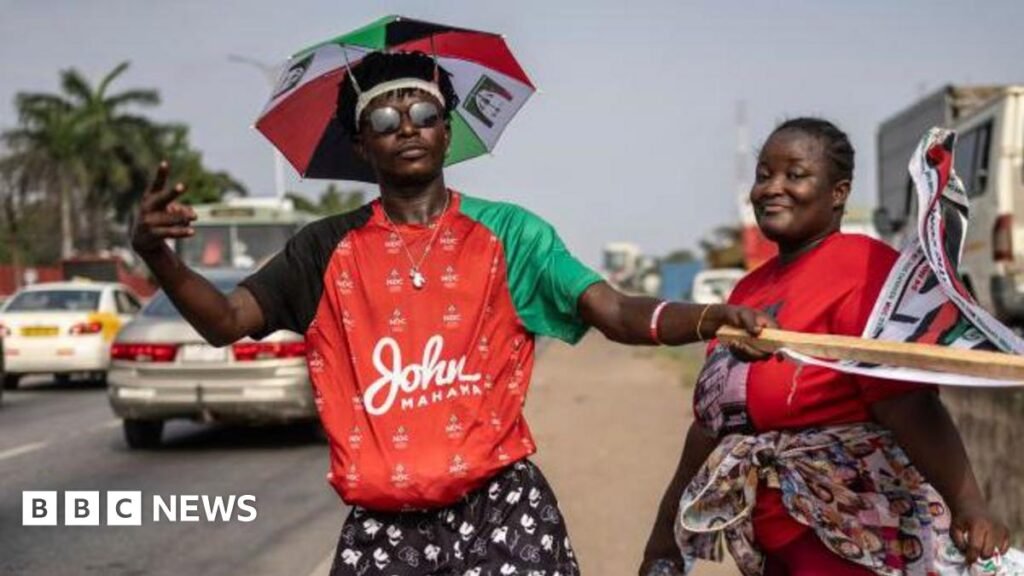Mahama served his first four-year term as president after winning in 2012, but lost his re-election bid in 2016 when Nana Akufa-Addo came to power with Bawumia as his running mate.
Dr. Yakubu said Mahama contested the 2016 election based on his track record of building roads, schools and hospitals, but voters rejected him because their mantra then was, “We don’t eat infrastructure.”
But, she said, during the Covid pandemic, voters appreciated the infrastructure his government had built, especially hospitals.
This – along with the fact that the economy has plunged into deep crisis under the current government, prompting it to seek a $3bn (£2.4bn) bailout from the International Monetary Fund (IMF) – led to Mahama was re-elected, Dr Yakubu added.
She told the BBC that Mahama must now fulfill his campaign promise to create jobs to reduce the unemployment rate of almost 15% and ease the cost of living crisis by abolishing some taxes – or what Ghanaians call “nuisance taxes”.
Mahama has promised to make Ghana a “24-hour economy” through the creation of night jobs in both the public and private sectors. He said he would give businesses tax breaks to stay open at night and reduce their electricity prices.
But his critics are skeptical, pointing out that Ghana was plunged into its worst electricity crisis during his first term and power outages were so severe that Mahama joked at the time that he was known as “Mr Damsar” – “dum ” means “off” and “sor” means “on” in the local Twi language.
He also promised to scrap several taxes – including the much-criticized electronic levy on mobile transactions and a carbon tax on petrol and diesel cars.
Prof Bokpin said he doubted the Mahama administration would be able to deliver on its promises.
“They didn’t do a cost-benefit analysis. There’s no way in the budget to turn those promises into reality,” he said.
But Mahama is confident of proving his critics wrong, saying he intends to renegotiate the terms of the IMF loan to free up money for “social intervention programmes” in a country where 7.3 million people live in poverty.
In an interview before the election, Mahama told the BBC that the IMF wanted “some balance” in public finances.
“And so if you can reduce spending and you can increase revenues and increase the non-tax revenue that comes in, you can create a balance sheet,” he said.

